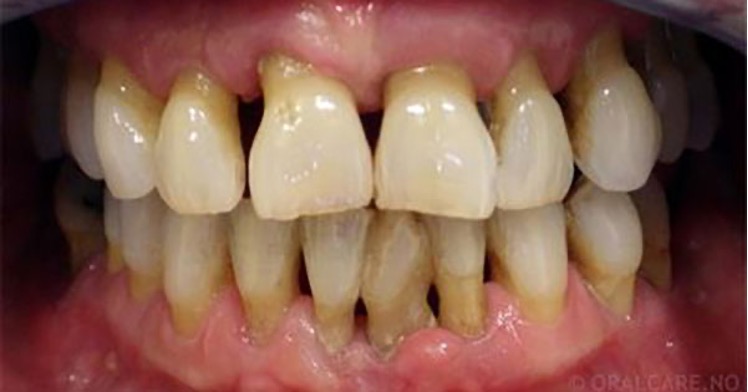Most oral diseases are preventable and can be treated effectively in the early stages.
The three most most common diseases of the oral cavity are cavities, gum diseases and oral cancers. It is estimated that oral diseases affect nearly 3.5 billion people. The goal of optimal oral health is to function in a disease-free and pain-free environment. Our teeth, gums and oropharyngeal structures execute our natural desire to smile, speak, and chew.
In this issue we will discuss three most common and threatening conditions; Oral Cancer, Tooth Decay and Periodontal Diseases.
Oral Cancer
In any given year there are nearly 45,000 new cases of oral and throat cancer diagnosed in the United States, with more than 10,000 deaths. The 5-year survival rate for these cancers is about 61 percent. High risks behaviors include cigarette, cigar or pipe smoking, smokeless tobacco, vaping and excessive use of alcohol.Early detection is key to increasing the survival rate for these cancers.
Tobacco use is one of the strongest risk factors for head and neck cancers, including oral cavity and oropharyngeal cancer. The more you smoke, the greater the risk.
In The Bahamas, deaths from oral cancers and in fact all types of cancers have been increasing year-over-year. Last available statistics show, the cancer mortality rate was 71.5 per 100,000, or 13.6 percent of deaths.
Cavities (Tooth Decay)
Cavities are caused by a breakdown of tooth enamel by acids produced by bacteria located in plaque that collect on teeth, along the gumline and in the crevices on the chewing surfaces and in between the teeth. Eating and drinking foods high in carbohydrates cause this bacteria to produce the acids that cause the outer coating of the enamel or root surface to break down. Although cavities are largely preventable, they are one of the most common chronic diseases. Untreated tooth decay can lead to a severe infection in the bone around the root under the gums which can spread to other parts of the body and have serious and sometimes fatal consequences. Untreated dental caries (tooth decay) in permanent teeth is the most common health condition according to the Global Burden of Disease 2019.
See some statistics from the World Health Organization:
- More than 50% of children over 6 years have had a cavity in their baby teeth.
- Up to 10% of children aged 2 to 5 have untreated cavities.
- More than half of adolescents aged 12 to 19 have had a cavity in at least one of their permanent teeth.
- More than 90% of adults have had a cavity.
Gum (Periodontal) Disease
About 40% adults aged 30 years or older have gum disease. Gum disease is mainly the result of infections and inflammation of the gums and bone that surround and support the teeth. During a comprehensive exam the pocket depths are examined to determine the extent of bone and gum loss. The most common sign of gum disease is bleeding on probing or while brushing. Certain chronic conditions increase one’s risk for periodontal disease including diabetes, a weakened immune system and poor oral hygiene. Tobacco use is also an important risk factor for gum disease. Another risk factor is diabetes and one’s genetic make-up. If early forms of periodontal diseases are not treated, the bone that supports the teeth can be lost, and the gums can become infected. Teeth with little bone support can become loose and may eventually have to be extracted.
In closing, oral diseases, while largely preventable, pose a major health burden for many people throughout their lifetime, causing pain, discomfort, disfigurement and even death.
Dr. Kendal V. O. Major is Founder and CEO of Center for Specialized Dentistry which is a comprehensive family dental practice operating in Nassau and Freeport. He is the first Bahamian Specialist in gum diseases and dental implants since 1989. He also is a certified Fast braces provider. His practice is located at 89 Collins Avenue, Nassau at (242)325-5165 or [email protected]

Squamous Cell Carcinoma (behind molars and inside of cheek)

Root cavities causing pain and suffering

Severe Periodontal Disease





